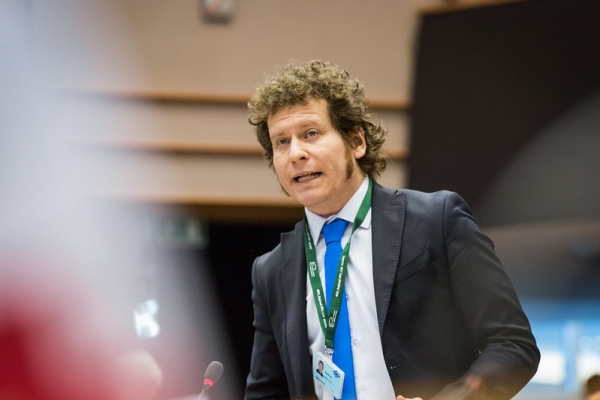
In a debate on the integration of migrants and the fight against radicalisation with Commissioner Ylva Johansson, ECR Member Matteo Bianchi repeatedly called for economic migration to be "controlled" and in the "hands of democratically elected central governments". If this is not the case, Mr Bianchi outlined the risk of "frustration in our communities growing and radicalisation increasing".
Mr Bianchi, who also serves as Councillor in Morazzone, Italy, offered insights into how the integration of economic migrants can be successful starting with looking for "well-qualified" economic migrants, "eager to become part of our societies". People who migrate to Europe should be able to address our talent shortages and "adopt our Western way of life". This is an important aspect for Matteo Bianchi as, for him, "integration is a two-way street". Coming to Europe, migrants receive access to "our job market and health and education systems" but in return, they must "accept our traditions, learn the language and contribute to our economy by paying taxes".
He provided examples of Italy where there has been a very successful integration of people from Albania who represent almost 10% of the overall foreigners in the country, and Poland where millions of Ukrainian and Belarusian workers integrated very well into the labour market. The ECR Member also attributed these successful cases of integration to the fact of having the "same cultural background".
On the other hand, Councillor Bianchi referred to the many examples of cities where integration of migrants failed. In 2017 police in Brussels uncovered that of more than 1,600 organisations and NGOs registered in the neighbourhood of Molenbeek, 102 were suspected of having links with crime, and another 51 were linked to terrorism. Places like this are – as the then Mayor of Molenbeek described it – "breeding grounds for terrorism".
The ECR Member highlighted the key role of local and regional authorities in the integration of migrants but emphasized that is the "central governments' responsibility for making sure that we attract people who want to integrate and in adequate numbers".
And what is the role of the EU institutions in this context? Mr Bianchi concluded that they "provide a good platform to exchange our experiences on the integration of migrants, but they should not try to take any competencies in this field away from the national authorities". For him, competence should remain with the local and central governments who know and understand best the needs of our societies.

